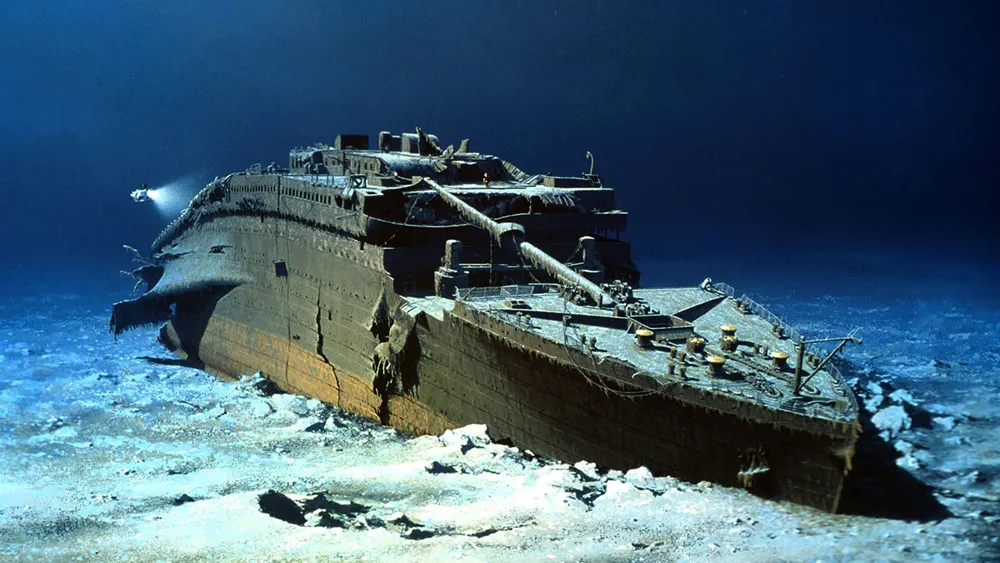David Whelan typically speaks very quickly with his thick Irish accent. Today, I can tell his rapid speech is driven by excitement. His Apollo 11 VR Documentary just won the Vision AR/VR award for Best VR Film/Interactive Experience, but he leans in close to tell me that his company will not be resting on its laurels and is already working hard on a follow-up experience about the Titanic.
“We’re about two months into work on the Titanic model,” Whelan said with a barely restrained smile. “… The focus for this experience is going to be on realism … You will be experiencing the boat crashing into the iceberg and you will also dive down and explore the wreckage underwater.
There is no concrete release date for the title, and Whelan explained they are still pretty far from a showable build. We will bring you more news on the experience when it becomes available.
Whelan is the CEO of VR Immersive Education, and yesterday’s Vision Award is only the most recent trophy in the slew of accolades his team has received for Apollo 11. The experience puts you in Neil Armstrong’s seat during that fateful day in 1969. The experience is already slated to be a launch title for the Oculus Rift, HTC Vive and PS VR.
In addition to VR documentaries, VR Immersive Education is also preparing to launch an alpha build of their new Lecture VR experience onto DK2s in the next few weeks. Lecture VR is a platform for educators to share lessons with students in a network virtual space.
“Think of it like powerpoint that is in VR and networked,” Whelan explains.
Lecture VR could become a challenge for the emerging VR socialization field that is currently being populated by groups like Janus VR and Altspace VR. Whelan said the experience is capable of running off of cellular network connections and performs well even between parties on separate continents.
In addition the avatars, collaborative whiteboards and visualization capabilities displayed in the trailer for Lecture VR, Whelan was able to explain some of the unannounced features that are being built into the experience.
“We will be building packs of assets for teachers to use in their lesson plans and releasing them absolutely free.” Whelan told UploadVR. “We are working on a system that lets one model serve as the avatar for millions of people to give the sense that each student feels like they are interacting with a teacher one-on-one rather than in a large group … Our goal is to create lots of educational demos that you can access in Lecture VR … We also see this as a terrific platform for people in business to conduct meetings as well.”
VR Immersive Education is also working hard to transform the 20 minute Apollo 11 documentary into the hour-long launch title it will be upon release. According to Whelan, that means adding additional scenarios and increasing the overall visual fidelity of the experience.
Whelan, and his team of four full time and two part time staffers back in Ireland, firmly belief that education can be made much more effective and accessible through VR.
“Our goal is to make sure that everyone has access to education no matter what their location or economic situation is … We believe that if we can provide an emotional reaction for students while they learn, they will be far more likely to connect with that concept … We would rather show kids what it’s like to stand next to Christopher Columbus as he sails on his voyage than have them read about him in a book.”
VR Immersive Education is headquartered in Ireland. The company ran a successful Kickstarter campaign to create Apollo 11, but it has been largely self-funded by Whelan. He is currently entertaining offers for an early round of investment.






























